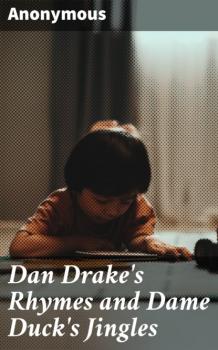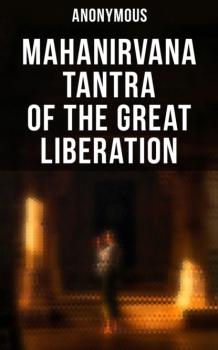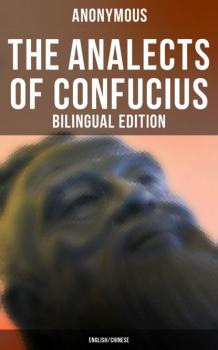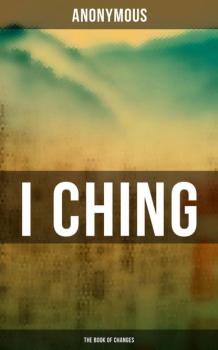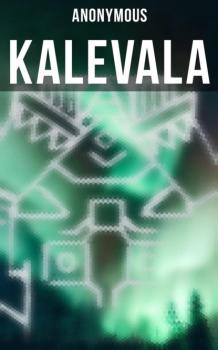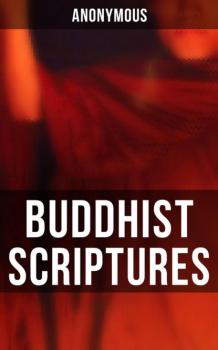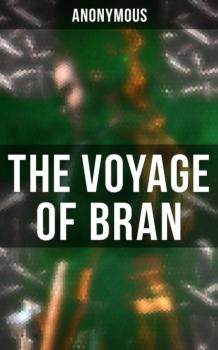Anonymous
Список книг автора AnonymousA Life Unveiled, by a Child of the Drumlins
"A Life Unveiled, by a Child of the Drumlins" by Anonymous. Published by Good Press. Good Press publishes a wide range of titles that encompasses every genre. From well-known classics & literary fiction and non-fiction to forgotten−or yet undiscovered gems−of world literature, we issue the books that need to be read. Each Good Press edition has been meticulously edited and formatted to boost readability for all e-readers and devices. Our goal is to produce eBooks that are user-friendly and accessible to everyone in a high-quality digital format.
Dan Drake's Rhymes and Dame Duck's Jingles
"Dan Drake's Rhymes and Dame Duck's Jingles" by Anonymous. Published by Good Press. Good Press publishes a wide range of titles that encompasses every genre. From well-known classics & literary fiction and non-fiction to forgotten−or yet undiscovered gems−of world literature, we issue the books that need to be read. Each Good Press edition has been meticulously edited and formatted to boost readability for all e-readers and devices. Our goal is to produce eBooks that are user-friendly and accessible to everyone in a high-quality digital format.
Old Buildings of New York, With Some Notes Regarding Their Origin and Occupants
"Old Buildings of New York, With Some Notes Regarding Their Origin and Occupants" by Anonymous. Published by Good Press. Good Press publishes a wide range of titles that encompasses every genre. From well-known classics & literary fiction and non-fiction to forgotten−or yet undiscovered gems−of world literature, we issue the books that need to be read. Each Good Press edition has been meticulously edited and formatted to boost readability for all e-readers and devices. Our goal is to produce eBooks that are user-friendly and accessible to everyone in a high-quality digital format.
Mahanirvana Tantra of the Great Liberation
Written as a dialogue between the god Shiva and goddess Shaki, Mahanirvana Tantra describes the chakras («disk» or «wheel», refering to the energy centers in our body), ceremonies, yogic practices and mantras for meditation, as well as a summary of the Hindu laws (dharma) regarding sexual behavior. Contents: Questions relating to the Liberation of Beings Introduction to the Worship of Brahman Description of the Worship of the Supreme Brahman Introduction of the Worship of the Supreme Prakriti The Formation of the Mantras, Placing of the Jar, and Purification of the Elements of Worship Placing of the Shri-patra, Homa, Formation of the Chakra, and other Rites Hymn of Praise (Stotra), Amulet (Kavacha), and the description of the Kula-tattva The Dharmma and Customs of the Castes and Ashramas The Ten Kinds of Purificatory Rites (Sangskara) Rites relating to Vriddhi Shraddha, Funeral Rites, and Purnabhisheka The Account of Expiatory Rites An Account of the Eternal and Immutable Dharmma Installation of the Devata The Consecration of Shiva-linga and Description of the Four Classes of Avadhutas
The Analects of Confucius (Bilingual Edition: English/Chinese)
The Analects of Confucius, is an ancient Chinese book composed of a large collection of sayings and ideas attributed to the Chinese philosopher Confucius and his contemporaries, traditionally believed to have been compiled and written by Confucius's followers. The Analects has been one of the most widely-read and studied books in China for the last 2,000 years, and continues to have a substantial influence on Chinese and East Asian thought and values today.
I CHING (The Book of Changes)
The I Ching, usually translated as Book of Changes, is an ancient Chinese divination text and among the oldest of the Chinese classics. Originally a divination manual in the Western Zhou period (1000–750 BC), over the course of the Warring States period and early imperial period (500–200 BC) it was transformed into a cosmological text with a series of philosophical commentaries known as the «Ten Wings». The I Ching is used in a type of divination called cleromancy, which uses apparently random numbers. Six numbers between 6 and 9 are turned into a hexagram, which can then be looked up in the text, in which hexagrams are arranged in an order known as the King Wen sequence. The interpretation of the readings found in the I Ching is a matter which has been endlessly discussed and debated over in the centuries following its compilation, and many commentators have used the book symbolically, often to provide guidance for moral decision making as informed by Confucianism, Taoism and Buddhism.
Kalevala
The Kalevala is the national epic of Karelia and Finland and one of the most significant works of Finnish literature. Today's modern version was compiled in the 19th century by Elias Lönnrot from Karelian and Finnish oral folklore and mythology. The epic tells the story about the Creation of Earth, describing the controversies and retaliatory voyages between the peoples of the land of Kalevala called Väinölä and the land of Pohjola and their various protagonists and antagonists, as well as the construction and robbery of the mythical wealth-making machine Sampo.
Buddhist Scriptures
This book is a short collection of excerpts from Buddhist scripture, selected by an expert in the field. It includes several stories drawn from the Buddhas' life, including past lives from the Jataka. Contents: The Dream of Queen Māyā The Birth of Gotama The Four Signs The Great Renunciation The Chain of Causation The Beginning of Buddha's Preaching The Ordination of Yasa The Ten Commandments The Fire Discourse The Weaver's Daughter The Questions of Mālunkyāputta The Questions of Uttiya The Questions of Vacchagotta Birth-Story of the Blessings of the Commandments Birth-Story of King Mahāsīlava Birth-Story of the City with Four Gates The Pig-Faced Ghost The Jewel Discourse. A Spell Dhaniya The Herdsman Buddha's Visit To Chunda The Death of Buddha The Non-Existence of Individuality Non-Individuality and Moral Responsibility
The Kebra Nagast
Kebra Nagast recounts the incredible life of Queen Makeda and her son Menelik. It presents a mix of historical events and biblical myths relating to the origin of the House of Solomon, the Ethiopian dynasty that came to power in the 13th century. According to the book's plot, Queen Makeda visited King Solomon after the fame of his wisdom had reached her lands. She and King Solomon met in Jerusalem, and being enchanted by his knowledge, spent a night with him. King Solomon gave her a ring, by which their future child should identify himself as a son of Solomon. Makeda gives birth to her only child Menelik and raises him by herself by the age of 22 when he decides to reunite with his father. Solomon was pleased to meet his son and offered to stay with him and become his heir to the throne. Yet, Menelik decided to return home. So Solomon gave him a guard of the first-born sons of the first men of his land. However, the young people didn't want to leave the kingdom and secretly stole the Ark of Covenant, with the help of which they were mysteriously transferred to Ethiopia before king Solomon left the borders of his land chasing them. The story is written in the form of a debate between the 318 priests of the First Council of Nicaea.
The Voyage of Bran
The Voyage of Bran is a classic of Irish literature. The story follows Bran mac Febail on his quest to the Otherworld, the realm of the deities. One day while Bran is walking, he hears beautiful music, so beautiful, in fact, that it lulls him to sleep. Upon wakening, he sees a beautiful silver branch in white bloom in front of him. He returns to his royal house, and among his retinue he spots a strangely dressed Otherworld woman, who identifies the branch to be from an apple tree growing in land of Emain and proceeds to sing a poem describing this Otherworld… This medieval narrative dates from the late 8th-century.

